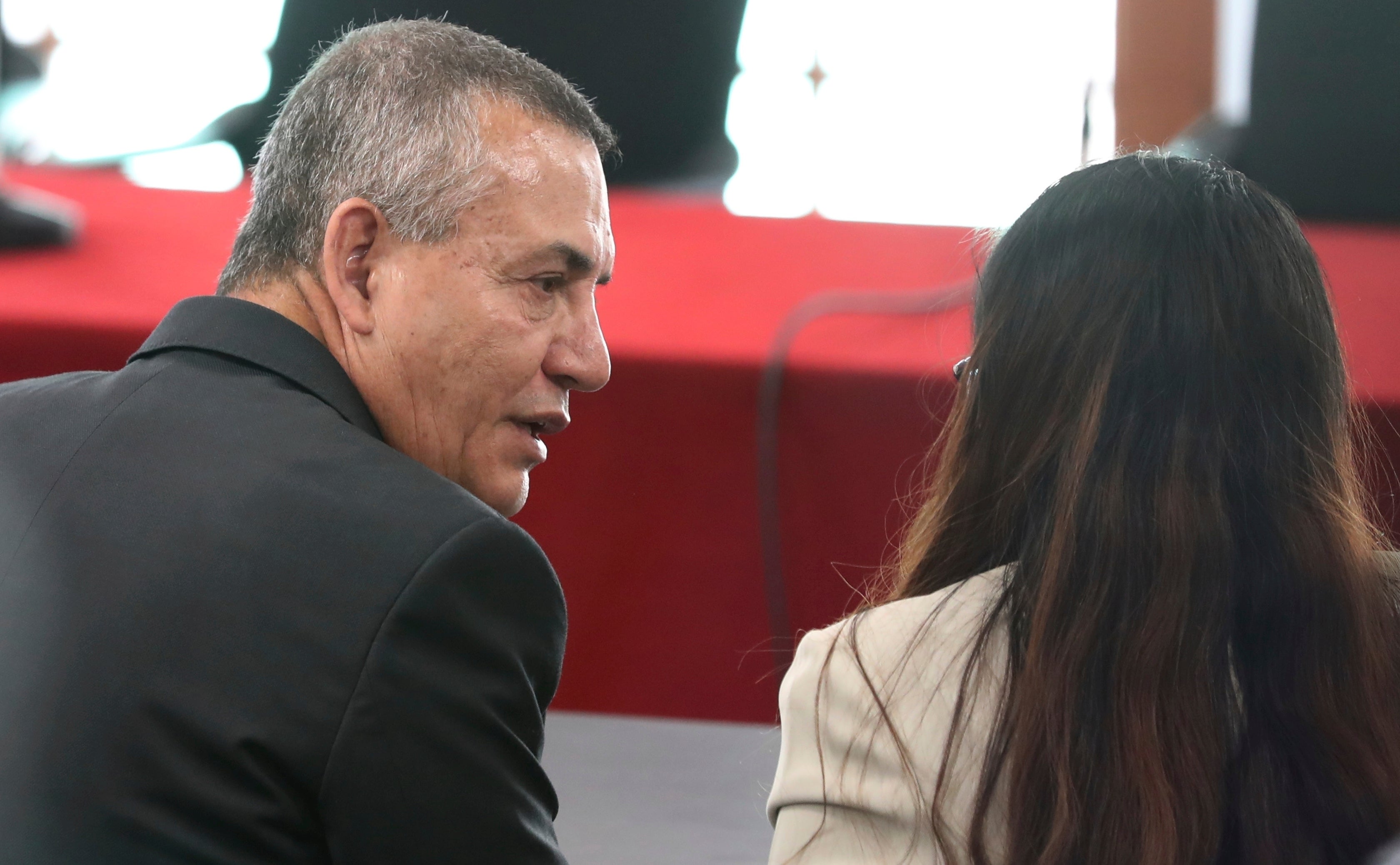Peru politician convicted in reporter's murder 35 years ago
A Peruvian judge has convicted and retired army general and conservative politician Daniel Urresti to 12 years in prison Thursday for his role 35 years ago in the murder of a journalist who covered abuses during Peru’s civil war

A Peruvian judge convicted retired army general and conservative politician Daniel Urresti and sentenced him to 12 years in prison Thursday for his role 35 years ago in the murder of a journalist who covered abuses during Peru’s civil war.
Hailed by advocates as an overdue but key verdict in upholding accountability and press freedom in Peru, the sentence represented a remarkable turnaround for Urresti, who has been an interior minister, congressman and presidential candidate as well as a frequent political commentator.
Urresti was a military intelligence officer in November 1988 when journalist Hugo Bustíos was machine-gunned and blown up with dynamite in a slaying initially blamed on the communist militant group Shining Path. A fellow journalist with Bustíos survived the attack.
Members of the military later were convicted of carrying out the ambush during a plainclothes patrol in Huanta province to prevent the journalist from covering news of military abuses against civilians in the largely indigenous region. The man who had been the local military commander was convicted in the attack in 2007, and he implicated Urresti as a member of that patrol in 2011.
Judge Juan Santillán issued the sentence Thursday in Lima as Urresti listened along with his wife and daughter, whom he hugged before being taken into custody by the police. Prosecutors had requested 25 years, but said they were satisfied with the decision. Urresti indicated he would appeal.
Sharmelí Bustíos, daughter of the murdered journalist and his late widow, told reporters that after 35 years, “I can tell my parents that they can finally rest in peace.”
The National Association of Journalists said in statements on social media that the verdict was restitution both for the family of Bustíos and for journalism. “It is an important step towards justice and the defense of press freedom in Peru,” the group said.
Urresti was a popular interior minister in 2014-15 under President Ollanta Humala, with a reputation for being outspoken and taking a hard line against crime. He served in Peru’s Congress in 2020-21.
The conviction against the politician came only after a second trial. He initially was acquitted in a verdict that was annulled in 2019 by the Supreme Court, which ordered a new trial saying that the previous process had been riddled with errors.
The Huanta province capital, also called Huanta, about 370 miles (600 kilometers) southeast of Lima, was one of the most violent cities during the war that raged between the Peruvian military and the Shining Path from 1980 to 2000.
Herminia Oré, who represents disappeared and tortured people of that city, told a journalist from The Associated Press in 2015 that there was an atmosphere of paranoia in Huanta during the conflict. “A candle lit in your house at night was a reason for the military to arrest you,” she said.
The civil war left an estimated 70,000 people dead, the majority of them in rural areas where the predominant languages were Quechua and Ashaninka
Bookmark popover
Removed from bookmarks